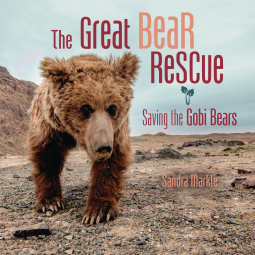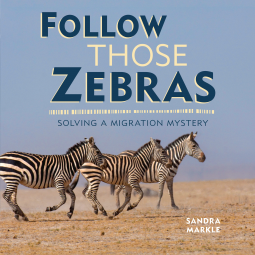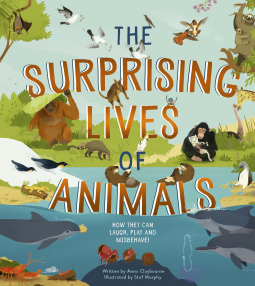Early Book Review: The World of Coral Reefs: Explore and Protect the Natural Wonders of the Sea by Erin Spencer
Early Book Review: Space Is Cool as F*ck by Kate Howells
Early Book Review: A History of the Undead: Mummies, Vampires and Zombies by Charlotte Booth
Early Book Review: Living Fossils: Survivors from Earth's Distant Past by Rebecca E. Hirsch
Book Review: Life Through Time: The 700-Million-Year Story of Life on Earth by John Woodward
Life Through Time: The 700-Million-Year Story of Life on Earth by John Woodward is a book that uses panoramic images to tell the story of life on Earth, from its earliest origins to the present day. The amazing story of life's evolution begins in vast oceans and swamp forests and is shaken by dramatic extinctions caused by ice, violent volcanic eruptions, and meteor impacts. It explores geological time and the origins of species that still exist today in early fish, amphibians, birds, reptiles, and mammals. It takes readers up to the appearance of our first human ancestors around 6 million years ago, the evolution of hunter-gathering Homo sapiens in the Ice Age, Stone Age farmers, the earliest civilization in Mesopotamia, the effects of the Industrial Revolution on the natural world, and people living with nature in the modern world.
Book Review: Scientists Who Dared to Be Different by Emily Holland
Scientists Who Dared to Be Different by Emily Holland is an illustrated nonfiction book that tells the stories of 16 pioneering figures of strikingly different backgrounds. People of varied ethnicity, nationality, gender, lifestyle, and wealth. What they all have in common - other than their genius - is their bravery, their resilience, and their ability to think beyond the bounds of established convention. The scientists talked about include Valentina Tereshkova, the extraordinary first woman in space, Marie Sklodowska Curie, the great pioneer of radioactivity, and first person to win two Nobel prizes. Galileo Galilei, the great physicist who bravely stood by his cosmic theories in the face of the Roman Inquisition. Katherine Johnson, the "human computer" who played a key part in NASA's space program and Stephen Hawking, the world-famous physicist who overcame physical paralysis to transform our understanding of black holes.
Scientists Who Dared to Be Different is a well rounded collection of ten to fifteen page biographies of these sixteen scientists. I liked that the scientists chosen were a blend of well known individuals and those that do not receive much recognition. The scientists profiled here also have a good deal of variety. They are from different genders, races, background, and so on. Mental health and society obstacles they faced were touched on, and I think the book does a good job of taking these names (both familiar and not) and making the people real and relatable. While those topics can be hard, the author did a good job of keeping the important aspects of these scientist's lives in the narrative while being completely age appropriate and accessible to young readers. The book can be read as a whole, or by taking it a scientist at a time. The illustrations are crisp and add visual interest to the page.
I think this would be a great addition to a school or classroom library, or for a child already interested in science or reading biographical material.

























